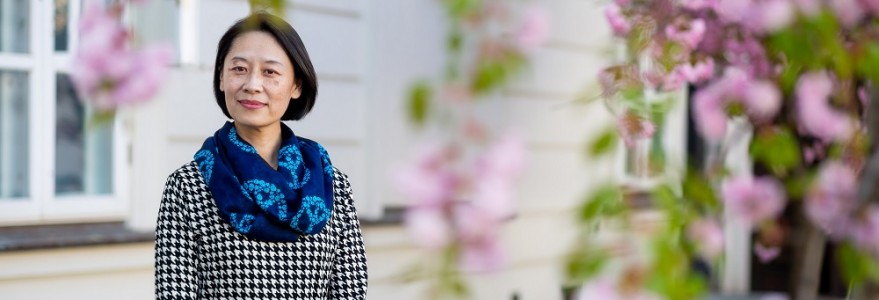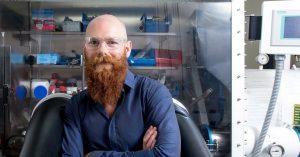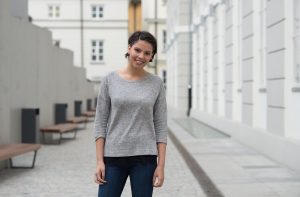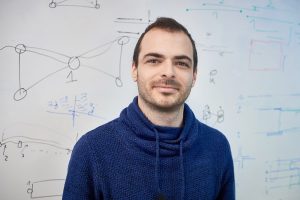“波兰, Bōlán (Poland) is my second home. I fell in love with this country. It is very beautiful and filled with rich culture. People are forthcoming, friendly and open here. Many people at the University of Warsaw share these values,” says Qian Li-Piszczek, a language teacher at the Chinese Studies Department of UW.
Qian Li-Piszczek graduated from the University of International Business and Economics and the Graduate Academy of Science in Beijing. She has come to Poland in the late 90s. and she has been working at the Faculty of Oriental Studies of the University of Warsaw since 1999.
Sinology has limited number of places. Only last year, 17 candidates were competing to get one place (the number refers only to the full-time students). Annually, there are about 65 first-year students (both full-time and part-time students) who begin their studies with no knowledge of Chinese and after one academic year, they are able to speak the language on the B2 level. “Our students get the best education. I am very proud of them. They are ambitious and hardworking. In the Chinese dictionary, there are about 60 000 Chinese characters (all kinds of forms). In order to communicate with each other, people use ca. 2 500 characters in a daily life. After the 1st year, UW students know more than 1 000,” says Qian Li-Piszczek.
As a native speaker, she teaches Modern Chinese Language to students. However, she knows the Polish language too, therefore, she also provides education in Polish, e.g. Chinese writing. “A sinologist is a person who not only speaks Chinese but also has a broad knowledge on Chinese history, literature, philosophy and culture. UW is the only one institution in Poland that provides education regarding both traditional and simplified Chinese characters,” explains the teacher.
Besides teaching, Qian Li-Piszczek works on her doctoral thesis analysing language mistakes of students.
About Mickiewicz in Chinese
Although she is a demanding lecturer – regularly testing knowledge, students enjoy having classes with her. Besides standard methods of teaching in the classroom, Qian pursues her own individual way too. She takes her groups for a walk along the Krakowskie Przedmieście Street leading to the Old Town. “Each student is supposed to prepare a topic about a particular place or monument, e.g. the Adam Mickiewicz monument, which is located on our way. Students turn into guides telling stories in Chinese. In my opinion, it is a pleasant and effective way of teaching. They memorize the vocabulary, overcome language barriers, learn how to be self-confident and how to attract people’s attention,” says Qian Li-Piszczek. “We observe that many passers-by are interested in what we are doing. They are impressed by the skills of students,” she adds.
More science, less politics
The University of Warsaw offers students and lecturers numerous possibilities of going abroad during their studies. After the graduation of the 3rd year, UW students can go to universities in China or Taiwan. Lecturers from China come to Warsaw and our teaching staff visit China. “Currently, we have two volunteers from Taiwan who teach our students the Chinese language. Even though the relations between China and Taiwan are complicated, we try to focus on science. Politics should not affect academia. We care about students and teach them openness. UW welcomes everyone. In my opinion being international means being open. Our university is like this,” stresses Qian Li-Piszczek.







